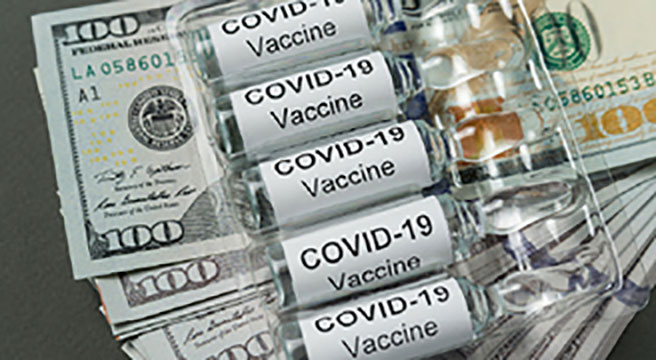The Most Common COVID-19 Scams – and How You Can Avoid Them
Scammers Look to Capitalize on the Covid-19 Health and Economic Emergencies
It is a common refrain among those who combat fraud that scammers follow the headlines. As COVID-19 has dominated headlines for nearly a year, it is no surprise that scammers have developed schemes to take advantage of the unprecedented health and economic emergencies the virus has created.
In order to combat these schemes, the Office of the State Comptroller (OSC) combined forces with the Office of the Attorney General and the United States Attorney’s Office for the District of New Jersey to create the New Jersey COVID-19 Fraud Task Force.
Here are some of the scams that have been reported across the country and ways to protect yourself from scammers:
Unemployment Insurance Imposters
As unemployment related to the COVID-19 pandemic remains at elevated levels, scammers seeking to exploit the unemployed have taken to impersonating Department of Labor employees. In one instance, a scammer posted his telephone number to a social media page and offered to assist unemployed individuals obtain benefits. Once the scammer was contacted by a potential victim, he would ask for personal information such as the person’s name, address, date of birth, debit card number, and unemployment claim number.
From there, the scammer would demand that the individual send gift cards to the scammer, and claimed that the individual’s unemployment benefits would be deposited into the account connected to his debit card after the gift cards were received. In an effort to further pressure the individual, the scammer claimed that benefits would only be provided if the individual acted “immediately” or “right now.”
In response to such schemes, the Department of Labor has posted a “Fraud Alert” to its website. The alert makes clear: “You do not need to pay anyone to file or qualify for your benefits.”
Stay vigilant and watch out for these and similar schemes. Scammers often request gift cards because they are difficult to track. They also try to exert as much pressure as possible on victims by stressing the urgency of the situation. If someone demands that you buy a gift card in exchange for benefits, and do so “right now,” you should be suspicious.
COVID-19 Vaccine Scams
As we pass the one-year anniversary of the public health emergency sparked by COVID-19, there is, understandably, a lot of excitement over the rollout of the COVID-19 vaccine. At the same time, there is a lot of confusion about when, how, and where to sign up for the vaccine. Scammers have preyed on that excitement and confusion.
We have seen reports of scammears asking for money in exchange for fraudulent COVID-19 vaccine reservations and selling fake tickets claiming to reserve a vaccination spot. In other instances, scammers posing as medical professionals and insurance company representatives have sent e-mails and texts to potential victims requesting an individual’s personal or medical information under the guise of determining their eligibility for the vaccine.
Follow these tips posted by the Federal Trade Commission to avoid vaccine-related scams:
- Do not pay to sign up for the vaccine
- Ignore sales ads for the COVID-19 vaccine
- Watch for unexpected or unusual texts or e-mails about the vaccine
- Do not share personal, financial, or health information with people you do not know
You can also find information regarding COVID-19 vaccinations and other information on New Jersey’s COVID-19 Information Hub.
How You Can Help Fight Fraud
We can only fight scammers with your help. If you have spotted a scam, or believe you may have been a victim of a scam, please contact the New Jersey COVID-19 Fraud Task Force at (866) 720-5721 or disaster@leo.gov. Complainants may remain anonymous.
Waste or Abuse
Report Fraud
Waste or Abuse
 Official Site of The State of New Jersey
Official Site of The State of New Jersey
